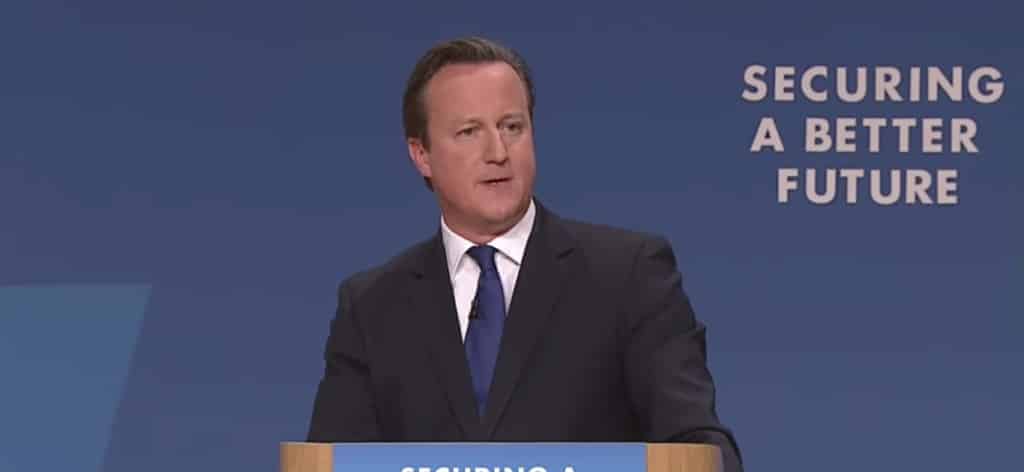The media storm of the last 24 hours has been so toxic because it includes and conflates party funding, lobbying, cash for access and cash for influence.
Party Funding
Giving money to political parties or politicians is rightly legal – especially if characterised by Obama-style ‘many-and-small’ donations. Party donations like this are usually characterised by an ideological overlap between the donor and the politician or party. All good – I have no issue with this at all. In fact, the more the better.
If donors give parties large amounts of money hoping to change policy, I think they will very soon find that they are proud owners of incredibly expensive smiling photographs and nothing more. At least, I hope that is the case. Nobody wants a repeat of the Ecclestone affair.
The big difference here is between giving a politician or a political party money because you believe in them and giving them money because you think they are biddable. Buyable.
I agree with Paul Goodman that if David Cameron was introduced to a lobbyist’s client, he would be perfectly charming, smile agreeably and then move on. Very expensive photos and a great dinner table boast may, of course, be included. Policy would not be influenced.
Generalising, the only way to persuade a party or a politician to (attempt to) change or implement a policy is to make them aware of a problem that they currently are not. Of course, it must be a problem which also fits with the personal or policy agenda of the party or politicians. And its existence and its solution should be fact based and have a wide beneficial impact on the public.
Lobbying
Lobbying is often lazy, seldom done well and there are numerous case studies for how to do it well and how to just be a smash-and-grab thief. Some points on lobbyists:
Good lobbyists provide politicians with technical information they wouldn’t ordinarily have and provide a single focused voice (much like a good trade organisation would) which identifies the scale of public support or benefit or need for change. Good lobbyists can be useful to politicians. They also give their clients a horizon perspective of forthcoming legislation and the relevant trigger dates and actions that could be relevant to them and can help clients focus and target their messages and other activities.
Some lobbyists provide clients with titillating and occasionally useful gossip and insights into how legislation is prioritised, who is who in parliament and who is friends with who. Fair enough, but very few have a uniform level of knowledge across portfolios, personalities and parties. Most are guns for hire – very few are real industry experts and specialists.
Bad lobbyists promise much (generally via claimed and exaggerated connections gained through former staffing roles) and deliver little of substance.
Very bad lobbyists only promise access. They usually use up all their goodwill with former colleagues rather quickly – and lose their reputations, their clients and their careers equally quickly.
Cash for Access vs. Cash for influence
Cash for access and cash for influence are two quite different things. Cash for access gets a dinner or event invite, a smile and maybe a handshake and a photo – and is the norm in all political parties both in the UK and the US – at a local and national level. But it is generally a waste of money if the objective is to alter policy.
Every business, charity or individual has access to parliament for free – via their MP. I do not know of a single MP who would not meet a constituent or constituency based organisation or company if it was simply requested. Lobbyists who charge to get a constituent or constituency organisation access to their MP are a waste of money – at the very least. If it is an issue that affects many constituencies, there will always be an MP who will happily corral support within parliament – and do so far better than most, if not all, lobbyists.
If policy issues are raised, either via contact with your own MP or via an event, then it up to the politician or party to take up that issue or not. But the reason for taking up that policy or issue must be transparent and evidence-based and as a result publicly sellable and of general benefit to the public. Not as a reward for cash paid. That is bribery.
Cash for influence is best done via sponsoring research through think tanks. The think tank’s job is then to bring the research to the attention of policy makers – either directly or through publicity specialists. The research, or evidence, (if credible and from a credible think tank) then has the influence, not the donor. “Broken Britain” produced by the CSJ and publicised by Nick Wood is a great example. Hard evidence, no short cuts, well promoted.
Peter Botting is a professional corporate, political and personal messaging strategist. He was integral to theNO2AV campaign and helped put the UK Anti-Slavery Day into law. He tweets at @PeterBotting and you can find more of his work at www.peterbotting.co.uk

